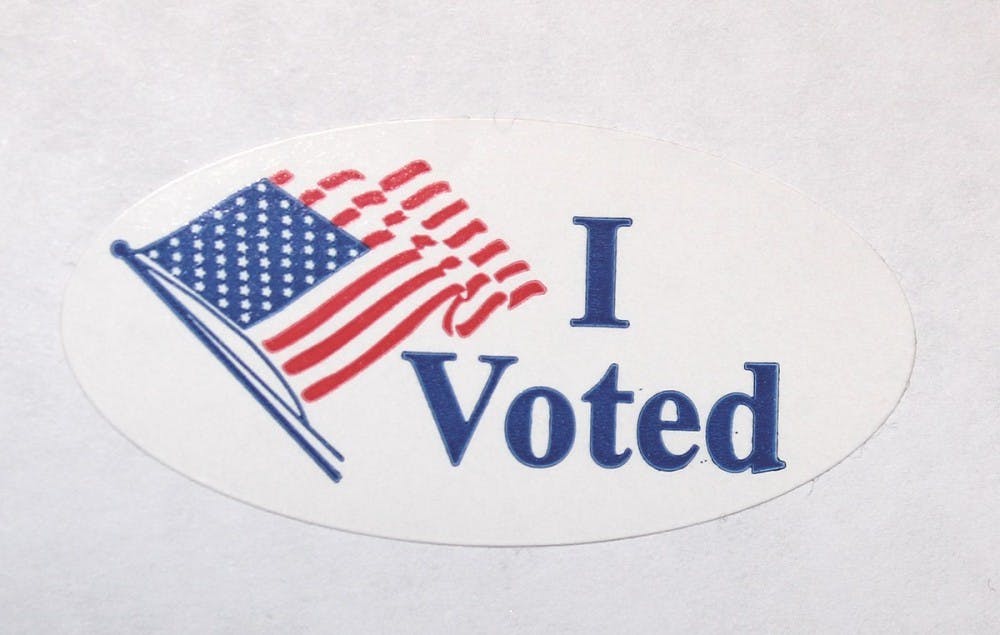The University Board of Elections, Honor Committee and University Judiciary Committee are organizing ways to increase student voter turnout with the start of campaign season Feb. 21 and University-wide elections March 1. Positions on the ballot this year include Student Council president, representatives for Honor and UJC as well as other class and school councils.
University Board of Elections
Mason Fuller, University Board of Elections Chair and a fourth-year College student, noted that UBE — which consists of 10 members — struggles to encourage such a large student population to vote despite the University’s model of student self-governance. Last year, just 1,341 students out of a possible 11,281 voted in the Honor Arts & Sciences Representative race, an 11.9 percent voter turnout. Only 12.6 percent of the student body voted in the Student Council presidential election, down from 18.8 percent in 2018.
“It's extremely hard to motivate such a large school to care about something that they may not necessarily feel like matters to them, even though — obviously — it does, because it's their representatives,” Fuller said.
Fuller elaborated that despite the organization’s small size, they reach a wide audience of voters by building partnerships with organizations such as Honor, the University Judiciary Committee and Student Council.
“We can't do it on our own, but we can do it with help from all these other groups that have all these different resources themselves,” Fuller said. “They know what works for them.”
One method which UBE and their partners will employ this year to increase participation is boosting their social media presence. The groups encourage students to look at their Facebook, Instagram and Twitter pages to learn about informational events and important dates.
“That's just the way that you can reach people in their everyday lives with whatever they're doing, so it doesn't have to be another email from me that everybody's just going to delete anyway,” Fuller said.
Honor Committee
Mary Beth Barksdale, Honor’s vice chair for education and a fourth-year College student, mentioned that she plans to organize a smaller scale popular assembly during campaign week that will allow voters to sit down with candidates and ask questions.
Students should expect to vote on constitutional amendments in addition to representatives. On the ballot, Honor plans to propose an impeachment amendment that would allow Honor to remove a member on the Committee who is serving inadequately in their elected position and replace them with a more active representative, as well as a motion that would make Honor’s Popular Assembly an annual event rather than bi-annual.
The impeachment amendment earned overwhelming support last year, with nearly 90 percent of voters supporting the amendment. However, the Honor Constitution requires at least 10 percent of voters to vote in favor of the amendment and low student turnout –– just 10.5 percent of the total student body participated in this vote –– forced Honor not to accept the motion.
Barksdale hopes that Honor’s discussions about pursuing Honor violations that arise out of Title IX cases will increase voter turnout this year.
“People are so interested in what we're doing, no matter their perspective on it,” Barksdale said. “They have an interest in the Committee right now, so I think, regardless of whether that's positive or negative, it's come at a good time for Honor because people want to lend their voice.”
University Judiciary Council
UJC Chair Shannon Cason, a fourth-year College student, noted that while UJC must reach out to students, they must also have a solid foundation within the organization in order to garner more attention.
“If you're not a strong internal organization, you can't put a great outward face forward,” Cason said. “I'm hoping in the next couple years we will be more outward focusing, doing things like co-sponsoring events, doing outreach events with student organizations on grounds that don't have anything to do with student self-government.”
One amendment UJC will put on the ballot this year involves a slight language change to their constitution. Currently, the constitution’s language prohibits first-year students from becoming UJC judges due to a requirement that judges have three semesters worth of academic work to attain the position.
“We ended up having first years and second years win [elections], and then they got to training to be a representative and we were like, ‘you can't actually do it because of this constitutional issue that we're having,’” Cason said. “So we want to make sure that we change that.”







